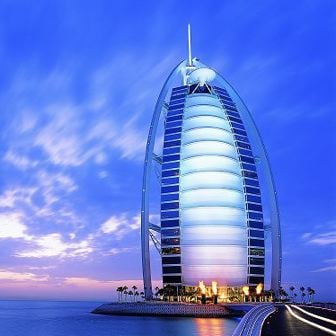
Emergence of an Arab Central Bank..??
Here’s an interesting development that I missed earlier this month, but remains very relevant: It appears the Gulf Cooperation Council (GCC), a regional group of middle-eastern Arab states have agreed tentatively to create a central monetary council that will evolve into a new Gulf Central Bank representing middle-east Arab states. Not surprisingly, the largest member of the GCC, Saudi Arabia, has won the coveted rights to host the new entity in Riyadh. According to the GCC Secretary General, Abdul-Rahman al-Attiyah, “An agreement was reached on the headquarters of the monetary council, which will be the city of Riyadh”. This decision appears to be the first steps toward a formal structure for the eventual central bank, as well as the larger aim of creating a single common currency among member states. However Mr al-Attiyah also added that “concerning the timeframe, no decision has been issued yet on the currency.” The original plan had been to take a decision on that by 2010, but the GCC has agreed now to extend that timeline. If successful, this will certainly place the Arab Central Bank within the parameters required for membership in the G-20 group of nations — if not also the G-8 — the organizations responsible for guiding principles of the global financial archtecture. If successful, this could prove to be an interesting development in the region with far-flung implications.
The GCC includes Saudi Arabia, the UAE, Qatar, Kuwait, Oman and Bahrain. Yemen is negotiating to join the GCC by 2016, and there are signed international agreements calling for the integration of Iraq into regional structures including the council, but with no timelines set. This region represents the largest reserves of oil and gas in the world, and so has significant economic implications for the world. With the financial crisis and collapse in the price of oil, bankers in the region feel that a single currency will help to stabilize long-term revenues while improve regional trade and development.
Despite these positive developments, political wrangling has delayed the decision-making process, and it appears there are still unresolved differences. The other strong contender as host, the United Arab Emirates (UAE), is not happy with this decision. Their representatives say they have “reservations.” The Saudi central bank has a balance sheet that is eight times larger than the UAE central bank, and this, together with the Saudi’s political influence globally, won out over the UAE’s credentials of greater accessibility and integration. Stay tuned . . .
Read more here.
Also visit this website, World Union of Arab Bankers.